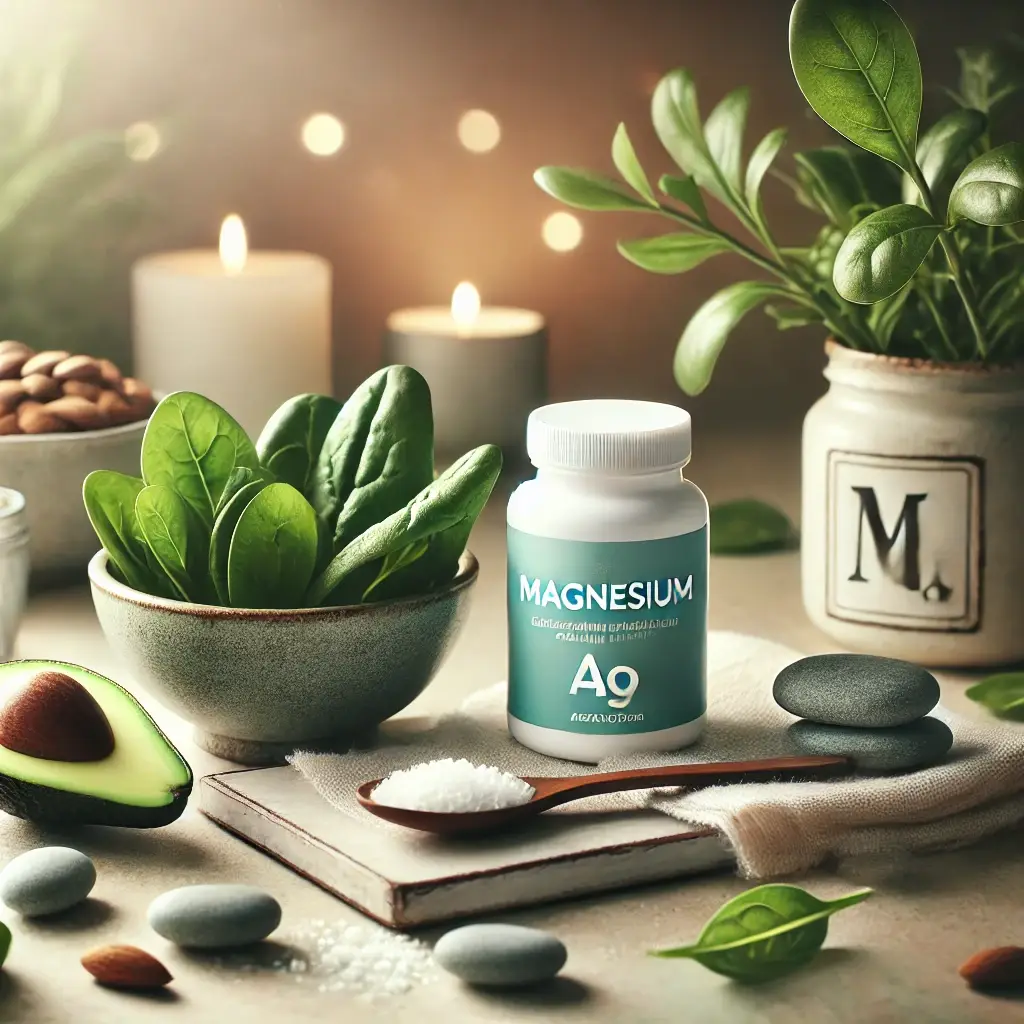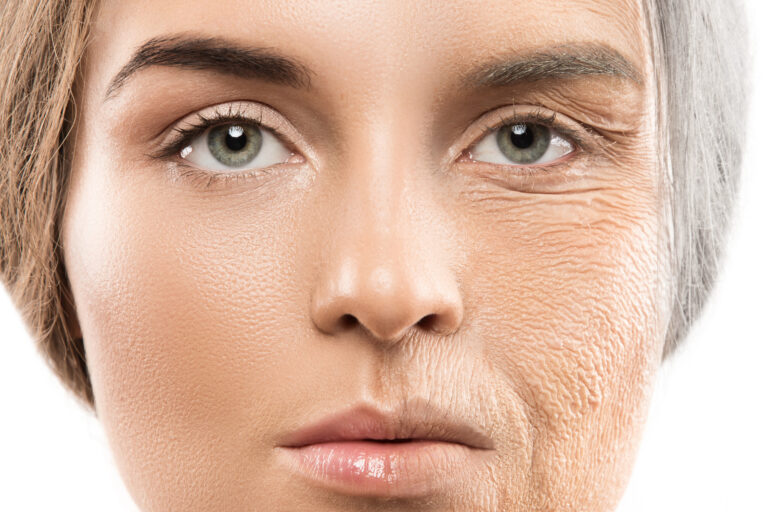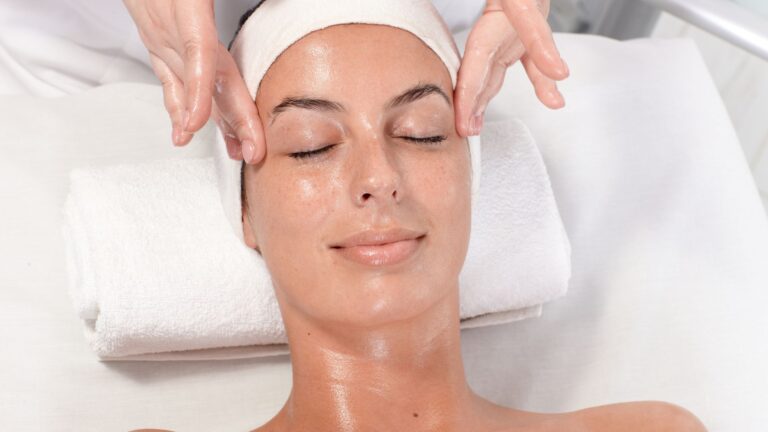
Magnesium is one of the most crucial minerals for your body, impacting everything from your heart and muscles to your skin and overall sense of well-being. Yet, despite its importance, many people aren’t getting enough of it. In this guide, we’ll explore how magnesium affects both your health and skin, the different forms of magnesium, and how you can incorporate this vital mineral into your life.
Why Magnesium Matters for Your Health
Magnesium is involved in over 300 enzymatic reactions in the body. It plays a role in everything from protein synthesis and muscle and nerve function to blood glucose control and blood pressure regulation. Essentially, magnesium helps keep your body running smoothly.
Key Health Benefits:
• Stress Reduction: Magnesium is known to promote relaxation and reduce stress. It regulates neurotransmitters and can help lower cortisol levels, leading to a calmer mind and better sleep.
• Heart Health: Adequate magnesium levels are linked to a reduced risk of heart disease. It helps maintain a healthy heartbeat, regulate blood pressure, and prevent muscle cramping.
• Bone Health: Magnesium is essential for bone formation as it aids in the absorption of calcium. Deficiency can lead to weaker bones and a higher risk of osteoporosis.
• Muscle Recovery: If you experience frequent muscle cramps or soreness, a magnesium deficiency could be the culprit. Magnesium helps relax muscles after a workout or strenuous activity.
Magnesium for Skin Health
When it comes to skincare, magnesium has some surprising benefits. This mineral can address issues from inflammation to signs of aging.
Key Skin Benefits:
• Reduces Inflammation: Magnesium can help calm skin inflammation and is often recommended for those with acne or rosacea. It works by lowering cortisol levels, which in turn helps reduce redness and irritation.
• Improves Skin Hydration: Magnesium helps regulate the natural hydration process in your skin by promoting lipid barrier function, which helps keep your skin moisturized and healthy.
• Fights Aging: Magnesium contributes to collagen production, which is essential for keeping your skin looking youthful and firm. It also helps protect your skin against free radical damage.
Different Forms of Magnesium: Which is Best?
There are various forms of magnesium, each with different benefits for your health and skin. Here’s a breakdown of the most common forms and their uses:
• Magnesium Citrate: One of the most bioavailable forms, magnesium citrate is excellent for digestive health and can help with constipation. It’s easily absorbed and a popular choice for overall magnesium supplementation.
• Magnesium Glycinate: Known for its calming effects, magnesium glycinate is often recommended for people dealing with stress, anxiety, or insomnia. It’s gentle on the stomach and a great option for long-term use.
• Magnesium Chloride: This form is commonly found in topical applications like magnesium oils and lotions. It’s excellent for muscle relaxation and can be absorbed through the skin, making it ideal for targeted relief from aches and pains.
• Magnesium Oxide: Often used as a laxative, magnesium oxide is not as easily absorbed by the body but can be beneficial for short-term digestive issues.
• Magnesium Sulfate: Commonly known as Epsom salts, magnesium sulfate is used in baths to relax muscles and soothe the skin. It’s a popular choice for reducing stress and easing muscle tension.
Each form has its strengths, so it’s essential to choose the right one based on your specific needs.
Foods Rich in Magnesium
While supplementation can help, one of the best ways to ensure you’re getting enough magnesium is through your diet. Here are some magnesium-rich foods to incorporate into your meals:
• Dark Leafy Greens: Spinach, kale, and Swiss chard are all excellent sources of magnesium.
• Nuts and Seeds: Almonds, cashews, and pumpkin seeds provide a significant magnesium boost.
• Whole Grains: Brown rice, quinoa, and oats are great for magnesium intake.
• Legumes: Beans, lentils, and chickpeas are also packed with magnesium.
• Fish: Fatty fish like salmon and mackerel are high in magnesium, along with other essential nutrients.
• Dark Chocolate: A delicious way to get your magnesium! Choose dark chocolate with at least 70% cocoa for the best benefits.
Supporting Minerals for Magnesium Absorption
Magnesium doesn’t work alone. To optimize its benefits, certain co-factors are essential. These include:
• Vitamin D: Vitamin D helps with the absorption of magnesium and calcium. A deficiency in Vitamin D can reduce magnesium absorption, so make sure you’re getting enough sunlight or taking a supplement if necessary.
• Vitamin B6: This vitamin improves magnesium absorption at the cellular level and is essential for the proper function of many biological processes.
• Calcium: Magnesium and calcium work together, especially for bone health. A balanced ratio of both is vital for optimal absorption and function.
• Potassium: Potassium supports the body’s ability to absorb magnesium and is crucial for muscle and nerve function.
Using Magnesium On Your Body
Magnesium oils, lotions, and Epsom salt baths can provide targeted relief and relaxation. Whether you’re looking to soothe sore muscles or reduce skin inflammation after a long day or tough workout, try out some magnesium infused products to aid your recovery and relaxation.
Conclusion: Embrace Magnesium for Holistic Health
Magnesium is a powerful mineral that plays a vital role in your health and skin care. Whether you’re eating magnesium-rich foods, taking supplements, or incorporating topical treatments, it’s essential to ensure you’re getting enough of this miracle mineral. At Little Oasis Spa, we’re here to help you and your skin look and feel it’s best.


